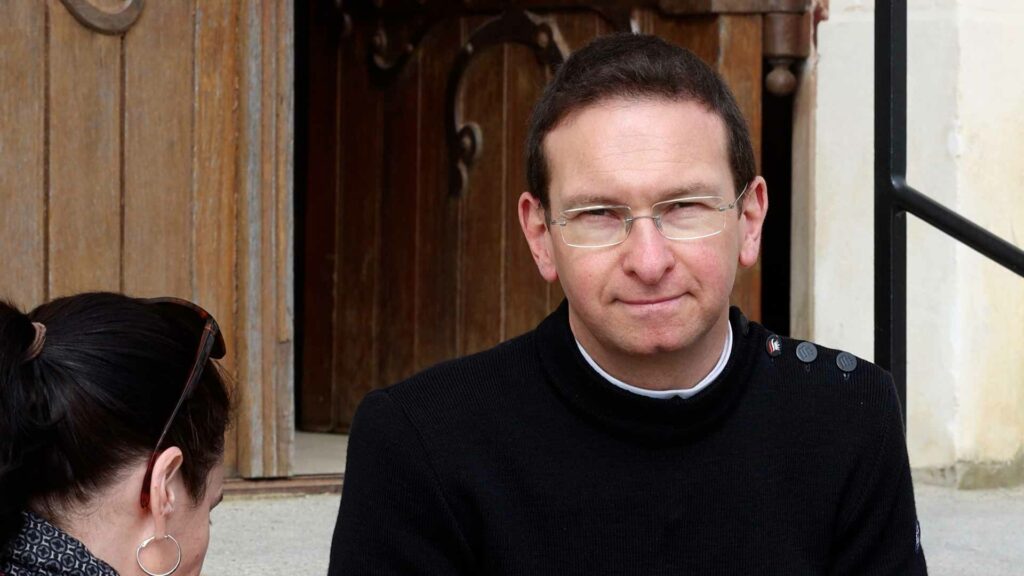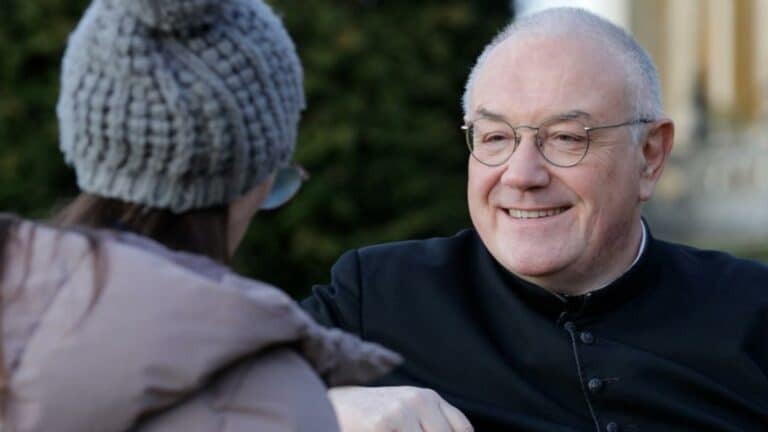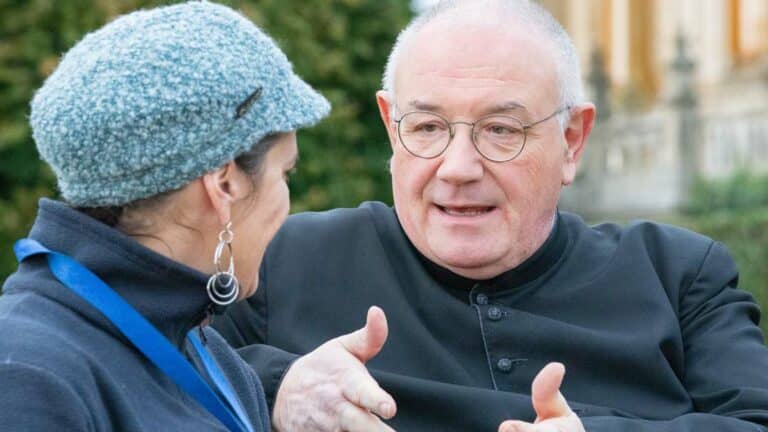What should we choose for funerals, a Mass or just a blessing? Less than half of the French wish to have a religious service for their own obsequies. Still, when a loved-one dies, the question of choosing between a Mass and a blessing is raised. What are the factors to be considered? We have interviewed don Patrick Pinard-Legry, chaplain at the Montligeon shrine. The interview was made for the programm Sanctuaires normands on RCF Orne-Calvados-Manche.
What is the difference between obsequies and a funeral?
Funeral and obsequies relate to the same thing, although their common usage differs slightly.
The term ‘obsequies’, borrowed from the Lower Latin obsequiae, which has the same meaning, itself derived from the verb sequor, ‘to follow,) chiefly refers to the funeral convoy and the funeral ceremony, while the funeral encompasses all the rites associated with the death of a person, from the wake to burial.
What are the differences between a Mass or a blessing?
The obsequies Mass is a Eucharistic celebration, which includes communion and the sacrifice of Christ offered for the salvation of the deceased.
It also includes rites specific to obsequies such as incensing the body, blessing with holy water and lighting the coffin with the Paschal candle.
A blessing does not include the Eucharist. It does, however, include certain liturgical rites, such as incensing and the sprinkling of holy water. The ceremony is simpler, often chosen when the family or the deceased had no regular practice of the Catholic faith.
How do you decide between a Mass and a blessing?
The choice is determined by several criteria:
- The will of the deceased ;
- Family practice;
- The existence of a funeral team able to bring support to the family and guide them if they are not accustomed to the celebration of the Eucharist;
- The way obsequies are organized in the parish.
Whatever the choice between a Mass and a blessing, the Church always celebrates a Mass for the deceased within the days following the blessing.
The Church’s role in obsequies
More than a simple tribute ceremony, a Mass or a blessing is a liturgical prayer celebrated by the Church. They are led by a priest or deacon, or even by a lay person trained for the purpose, with the participation of the parish community or a funeral team appointed for the purpose. In mission countries, catechists are trained to celebrate funerals.
The offering for a Mass or blessing
The Church requests an offering for each celebration, to meet the needs of the parish. The offering is the same for a Mass or a blessing. The amount is variable from diocese to diocese. In France is generally between 150 and 300 euros.
The Mass in relation to the salvation of the soul of the deceased
The Mass for obsequies is particularly important in the Catholic tradition, as it associates the deceased with Christ’s sacrifice for his or her salvation. The Eucharist is the most effective prayer for interceding on behalf of the deceased and helping him or her to enter Heaven. However, a blessing, accompanied by subsequent Masses for the deceased, remains a powerful prayer.
What about obsequies with cremation?
Since 1983, the Church has allowed a Mass or a blessing to be celebrated before cremation, but not afterwards. This choice is explained by the symbolic significance of entombment, the faith in the resurrection of the body, and funeral rites that are linked to baptism, and therefore to the body of the deceased. In addition, families often need a place to gather in memory of their deceased.
The burial of an urn in a cemetery is therefore imperative; the scattering of ashes is forbidden by the Catholic Church: https://www.vatican.va/roman_curia/congregations/cfaith/documents/rc_con_cfaith_doc_20160815_ad-resurgendum-cum-christo_fr.html
Communion and the presence of the dead
At an obsequies Mass, communion allows us to enter into communion with the deceased. There is no direct contact with the deceased; it is through charity – the theological virtue exercised in the communion of saints – that we remain united with them. In practical terms, this charity takes the form of prayer, participation in the Eucharist, acts of mercy, the offering of Masses. It can be applied to them as suffrages (cf. CCC 946-962, especially 958; 1479).
According to the Church’s teaching on the communion of saints, our prayers and acts of charity can benefit the deceased, helping them to enter eternal life more quickly.




